Despite sharing similarities, every dairy farm is different. Vermont dairy farms offer diversity in production practices, herd size, and acreage.
While cows dominate our dairy landscape, Vermont also has 33 dairy goat farms and three dairy sheep farms producing milk, cheese, and other products.
In addition, a quarter of our dairy farms in Vermont are certified organic, meaning they adhere to specific guidelines on livestock care, feed, and environmental practices.
Goat and Sheep Farming
Cows are the primary producers of milk in the Northeast, but goats and sheep also play a vital role in the dairy industry.
Nationally, markets for goat and sheep dairy products are expanding, presenting a potential alternative for dairy farmers in Vermont.
Consumers ages 18 to 44 years, particularly those with children under 18 in their households, are more likely to consume sheep and goat dairy and more willing to pay for it.
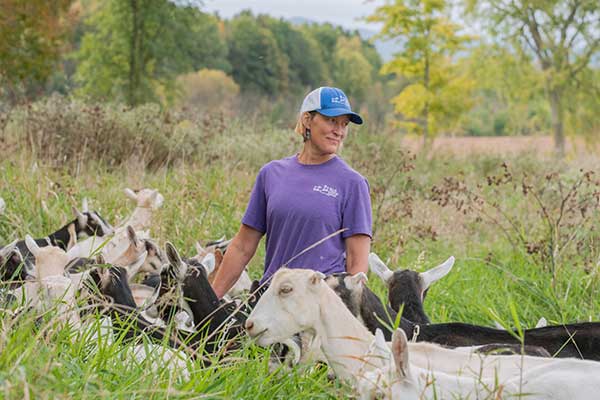
Diversity of Livestock in Vermont by Percentage
64%
Increase in the number of milk goats and kids in Vermont from 2007 to 2022
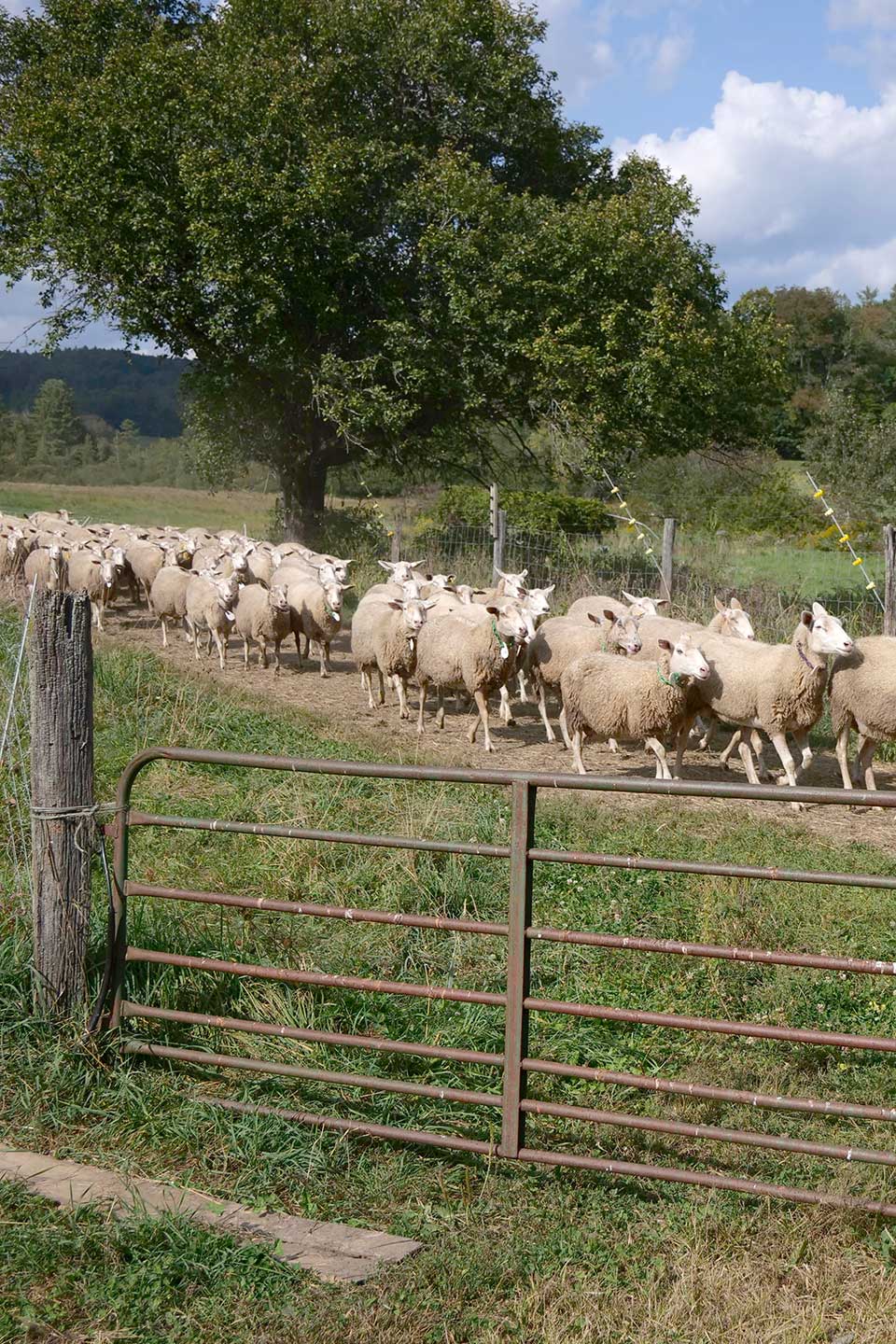
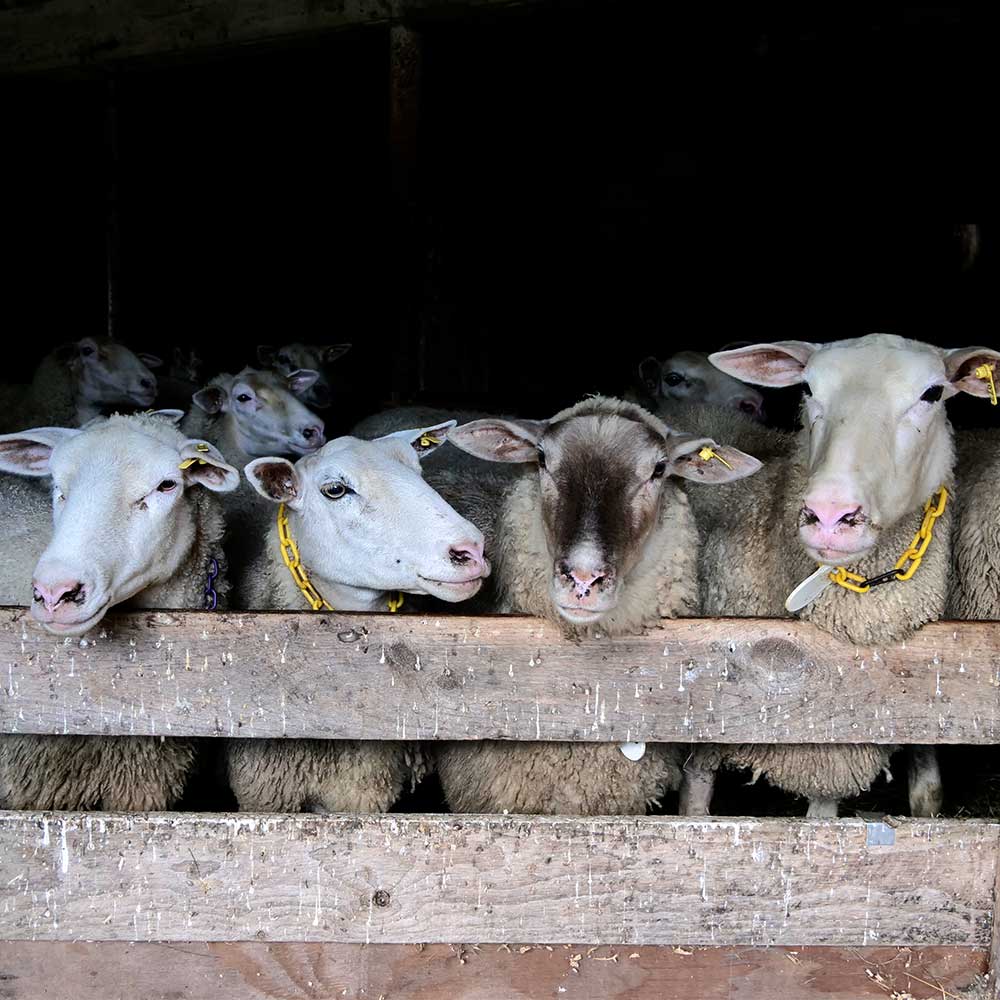
Sheep Farming
Despite the high demand for sheep-milk cheeses, the U.S. sheep dairy industry is less developed than the goat dairy industry.
Vermont has three sheep dairy farms, and there are only 200 sheep dairies nationwide.
Still, there are success stories right here in the Green Mountains. Vermont Shepherd, a family-owned and operated 250-acre sheep farm in Westminster West, is one of the oldest sheep dairies in the country.
“You can set up a goat dairy operation with a fraction of the cash outlay that it takes to set up a cow dairy. I lease one new tractor and own one skid steer. You don’t have to be encumbered by really complicated systems.”
Miles HooperAyers Brook Goat Dairy via VTDigger
Organic Farming
In Vermont, 25% of our dairy farms are certified organic, compared to the national average of 11%.
In 1992, Vermont didn’t have a single certified organic dairy farm. By 2007, there were 204. As of 2024, there are 123. In the early 2000s, organic dairy offered an alternative to low milk prices in the conventional market. Organic companies paid higher milk prices and provided stable contracts.
1 out of 4
dairy farms is organic in Vermont
1 out of 9
dairy farms is organic nationally
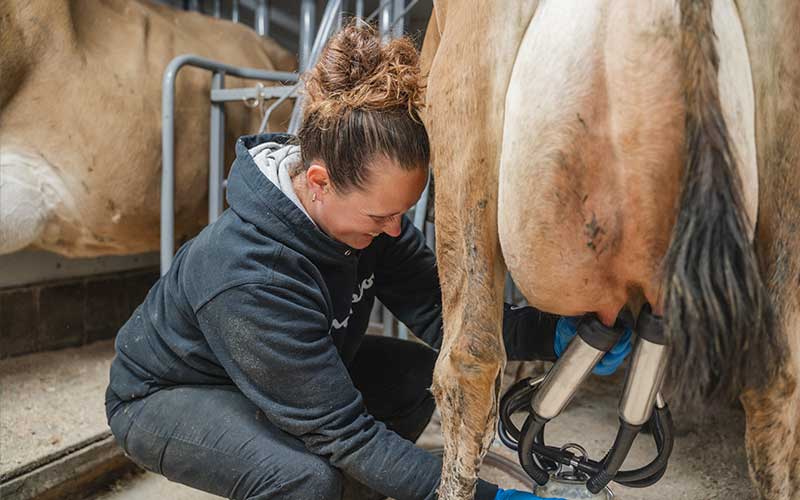
Consumers are willing to pay more for organic milk in 2024
Consumer Perceptions about Organic Milk
Consumers are increasingly aware of how their food choices impact the environment and are making decisions based on information regarding animal welfare, eco-friendliness, and local sourcing.
Consumers also consider sustainability in dairy products and are willing to pay more for farms using environmentally friendly practices


